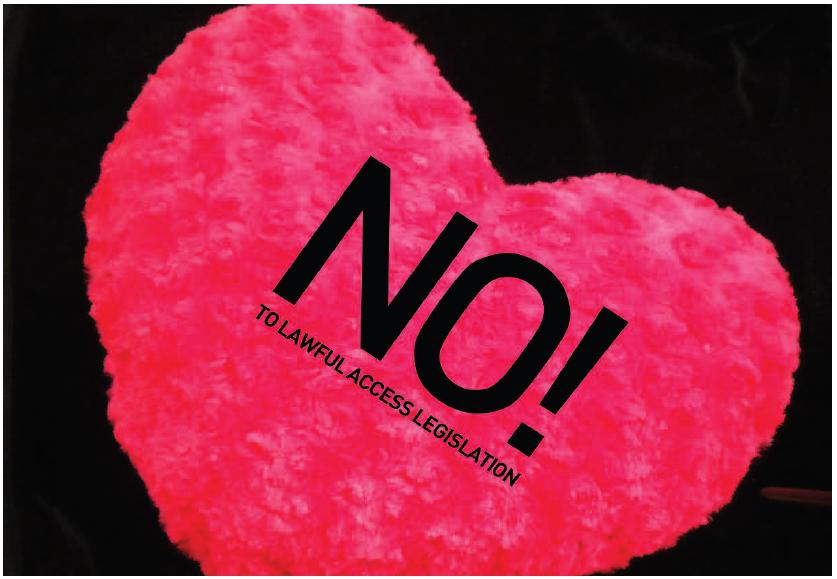This is an archive of news stories and research from the National Union of Public and General Employees. Please see our new site - https://nupge.ca - for the most current information.
Warrantless access to your online identity and activities is a breach of your fundamental right to privacy. This is the month devoted to softer feelings, why not Send Vic Toews a Valentine .
 Ottawa (14 Feb. 2012) - Civil liberties advocates and those campaigning for an open internet are urging people to send the Honourable Vic Toews, the Federal Minister of Public Safety, a special Valentine's day card to show their opposition to the forthcoming "Lawful Access" legislation. The cards can be downloaded at Send Vic Toews a Valentine.
Ottawa (14 Feb. 2012) - Civil liberties advocates and those campaigning for an open internet are urging people to send the Honourable Vic Toews, the Federal Minister of Public Safety, a special Valentine's day card to show their opposition to the forthcoming "Lawful Access" legislation. The cards can be downloaded at Send Vic Toews a Valentine.
Warrantless access to your online identity and activities is a breach of your fundamental right to privacy. Since this is a month devoted to softer feelings, why not send him a valentine.
Critics charge that the so-called "Lawful Access" legislation will dramatically expand the surveillance capacity of the state. The new powers aim to put the vast amounts of data recorded as a by-product of a digital world in the hands of the state with few safeguards.
A recent report, “Moving toward a surveillance Society: Proposals to Expand Lawful Access in Canada”, written by Philippa Lawson for the BC Civil Liberties Association (BCCLA), fueled these concerns. The report cites the following problematic features of the Lawful Access proposals:
- New unfettered police access to identification data without the need for prior judicial authorization, or even for reasonable grounds to suspect the information will be useful to a criminal investigation;
- New powers to order the preservation of online data on a low standard, and at times without prior judicial authorization;
- New powers that will allow access to tracking and transmission data on a ‘mere suspicion’ of wrongdoing; and
- A general lack of accompanying oversight and accountability to ensure these powers are not abused.
The report puts this legislative package in today’s context of a technological world with vastly more expansive and richer personal data available. It concludes that the legislation “opens up a trove of information to police that would otherwise be inaccessible” and finds the constitutionality of many of its proposed powers “highly questionable”.
Supporting the opposition to the legislation are The National Union of Public and General Employees (NUPGE), the Council of Canadians (COC), International Civil Liberties Monitoring Group (ICLMG), OpenMedia.ca, The Public Interest Advocacy Centre (PIAC), The Rideau Institute and the Samuelson-Glushko Canadian Internet Policy & Public Interest Clinic (CIPPIC).
NUPGE
The National Union of Public and General Employees (NUPGE) is one of Canada's largest labour organizations with over 340,000 members. Our mission is to improve the lives of working families and to build a stronger Canada by ensuring our common wealth is used for the common good. NUPGE
